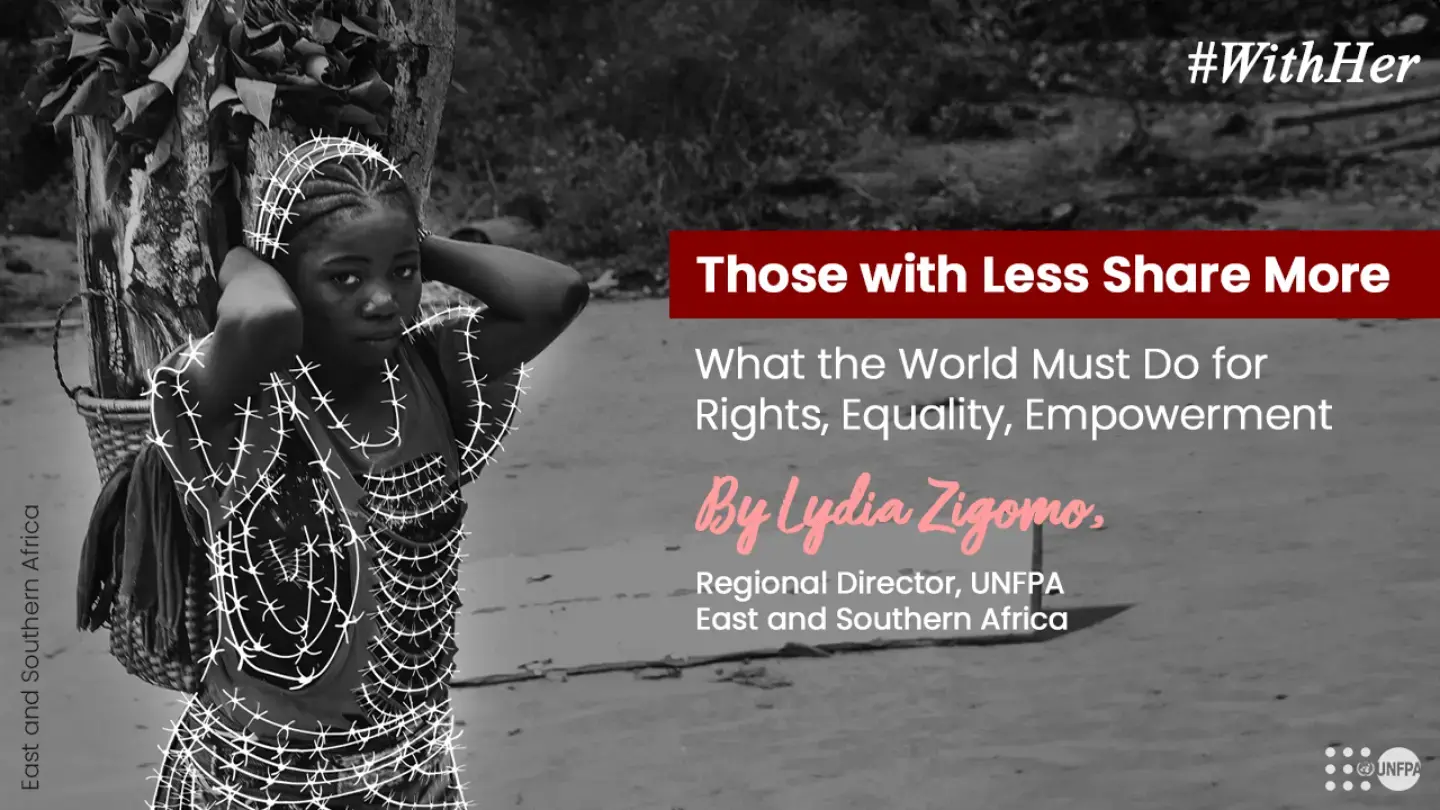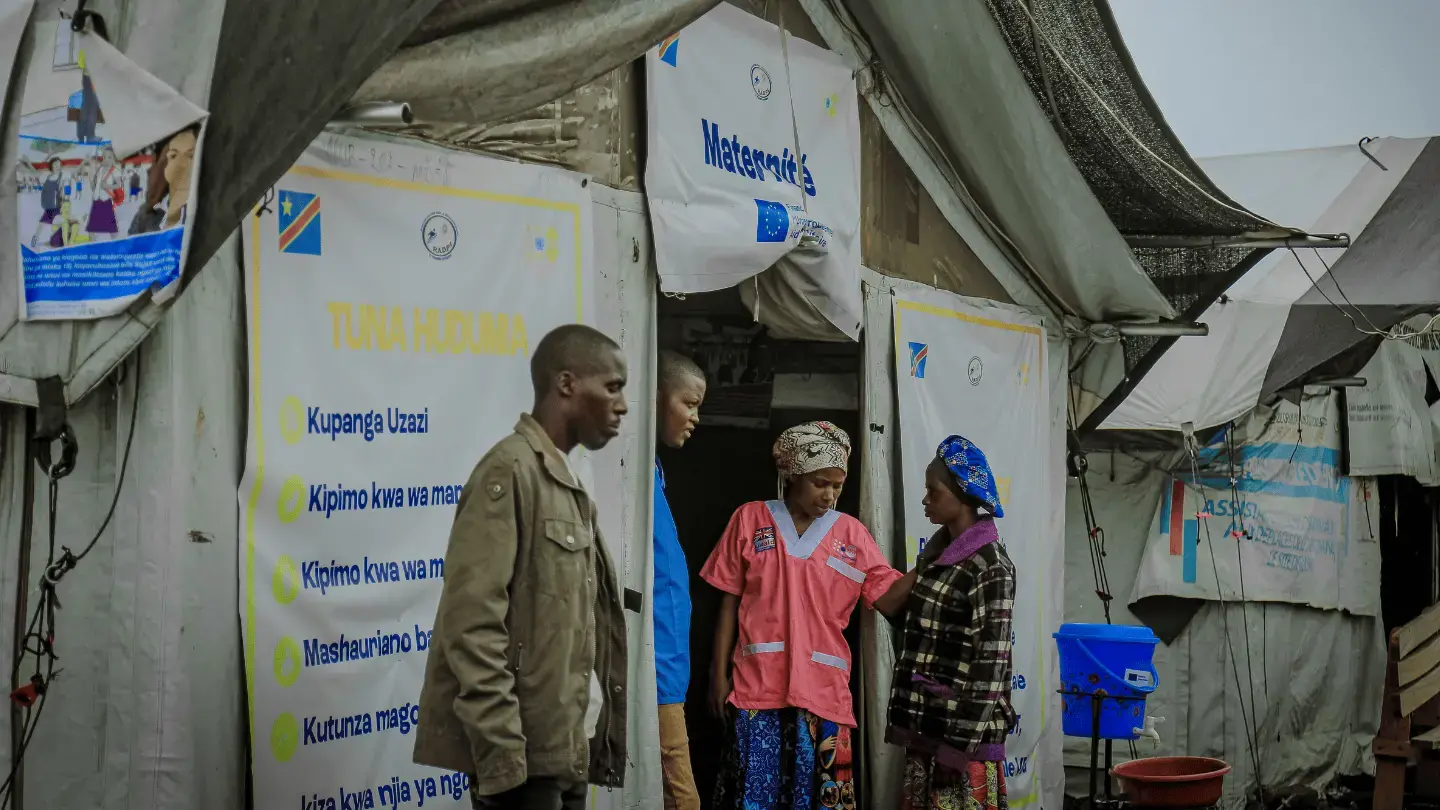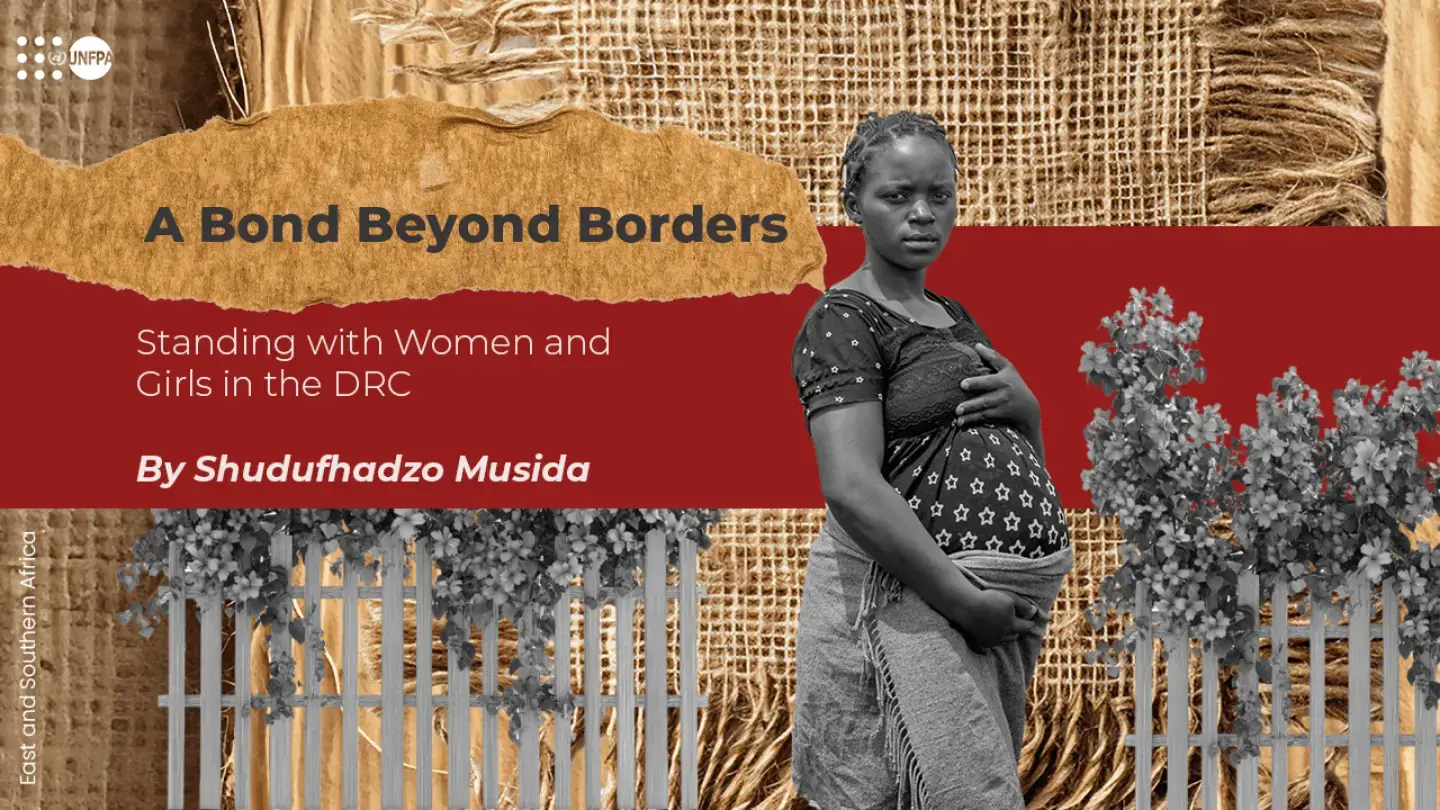Our Humanity in Times of Crisis
Blog by Dr. Julitta Onabanjo
As governments around the world respond to the COVID-19 pandemic with lockdowns and fiscal relief packages, this unique global crisis has led me to reflect on the definition of “wellbeing”.
Wellbeing is defined as a state of being comfortable, healthy or happy (Oxford English Dictionary). Yet an overall sense of wellbeing could not be possible without having a balance of physical, emotional, social, spiritual, intellectual and economic wellness. And it presupposes that one is able to fulfill basic needs like access to clean water, food and safe shelter, in addition to education, and quality health care that takes into account sexual and reproductive health and rights.
Each basic need is important. Together, they enable us to go about our daily lives and present us with an opportunity to fulfill our utmost potential. But what happens when the current context we find ourselves in simply won’t allow us access to the fundamental elements of wellbeing?
Even prior to the COVID-19 crisis, people in the East and Southern Africa region struggled to access quality health care and basic education, creating barriers to their wellbeing. Due to the current pandemic, additional difficulties have been imposed to contain the spread, such as maintaining physical distancing and staying at home.
Yet in a region where many people live in high-density informal settlements, physical distancing and staying indoors are a near impossibility. In Africa’s urban areas, for instance, 56 per cent of the population is concentrated in overcrowded and poorly serviced informal settlements, while just 34 per cent of households on the continent have access to basic hand-washing facilities.
Governments have ordered mandatory nation-wide lockdowns in an honest effort to protect their citizens, yet they acknowledge that one harm reduction strategy must be balanced with another. At UNFPA, we have seen that movement restrictions in the region have severely curtailed many women and young people’s access to sexual and reproductive health services. A ban or restriction on public transport can mean a pregnant woman being denied the ability to get to a health facility to deliver her baby. Lockdowns are also placing women and girls at increased risk of gender-based violence, including intimate partner violence and domestic abuse.
We are facing innumerable choices when it comes to addressing wellbeing. Multi-dimensional inequalities are so integral to our social systems and economies that we are collectively hamstrung when exercising the very precautions that are needed to combat the coronavirus. In this case, mitigation strategies like physical distancing only realistically become an option for the few that fall in the higher income brackets.
Unless we contextualize wellbeing, therefore, we cannot effectively respond to such crises. COVID-19 has exposed fault lines between the fundamental principles of wellbeing and what is practical when considering the realities on the ground.
Upon recognizing such obstacles, we must turn towards the essential measure of encouraging individuals to engage and innovate. From the outside, it often appears as though the region is poorly prepared to address a pandemic of COVID-19 proportions. However, the reality is that we know individuals have always adapted their sense of wellbeing to the environment in which they find themselves, and it is with the right support that such individuals can devise the best ways to take action and prevent the spread of the virus.
Yet, how can we offer this support? And how can we effectively overcome some of the hurdles we encounter? Instead of viewing our populations as victims, we can see people as essential assets in this fight. We must recognize that individual agency can be called upon collectively to solve this global problem we currently face.
This is because agency breeds action and results give rise to empowerment. And oftentimes, the ability to exercise choice can be enough to engender improved life outcomes. We have seen this time and time again with the women and girls in our region who are served by our programmes, particularly in the context of family planning, which allows them agency and autonomy.
Tomorrow can be better than today only if the element of agency is respected and nurtured.
In a situation like this pandemic, prescribed standards and protocols must give way to the ideas that work best within a given context, never losing sight of the fundamental principles that guide us towards achieving a better world for all.
I am constantly struck by the determination of young people I have met, many of whom live in townships and informal settlements across the region. With small acts of courage, they are taking individual action. Recently, young activists in Cape Town, South Africa, spoke up about the cordoning-off of condoms in pharmacies.
This information was communicated to the COVID-19 national crisis response team, which acted quickly. Condoms are now a part of essential commodities that are being sold in pharmacies. Thanks to this level of initiative by young activists and the belief that individuals can make a difference, direct improvements to communities’ wellbeing have been effected.
Innovators and activists are out there in countless numbers. In these unprecedented times, we must do our utmost to support them in improving living conditions in the most marginalized communities. When these efforts are seen to pay off, even in small ways, it paves the way for greater vision and the personal leadership needed to overcome this pandemic.
Fostering wellbeing, therefore, is much more than affording access to adequate food and safe shelter. It is about nurturing choices and providing the opportunity to act.




